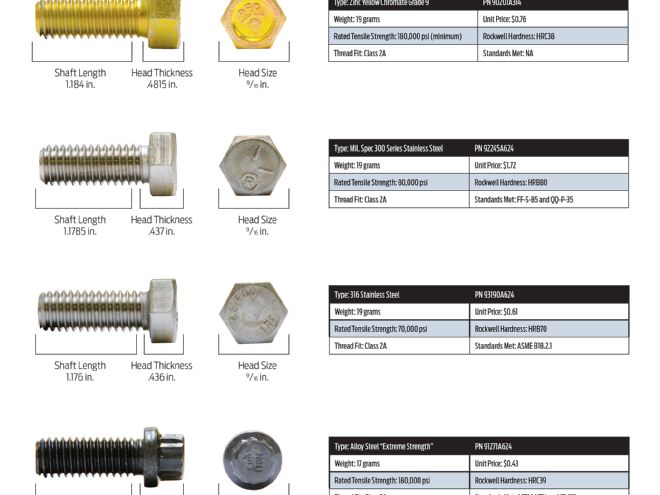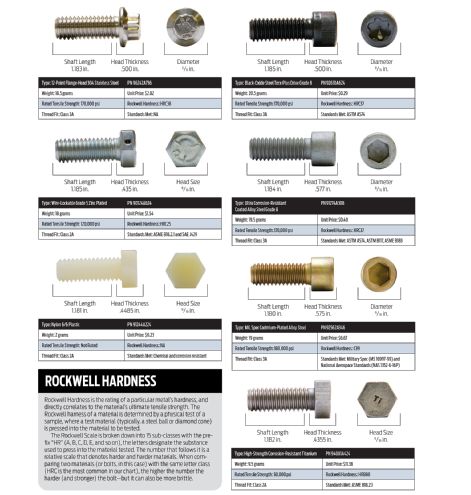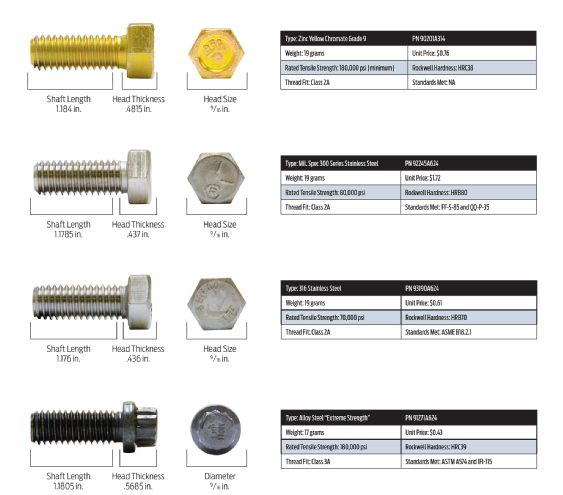
Fasteners provide the critical joining forces that hold our hot rods together. All of our cars have them, we all buy them, but traditionally the bolts we use have been based on four factors: what size do we need, how strong do they have to be, what does the local hardware store have in stock, and can we afford them? The problem is that hardware-store fasteners represent a compromise, adequate for most general-purpose use within their strength limitations, but not necessarily optimized for critical usage in specialized applications. Today, there are specialty fasteners specifically designed for high corrosion resistance (titanium), extreme strength under tension (alloy steel), high ductility, or even nonconductivity (plastic). Some feature reduced-size or internal-wrenching heads that save space in close quarters. Others, such as 12-point fasteners, both save wrenching space and are more resistant to round-off when being tightened or loosened.

Some fasteners may have antirotation or antiloosening features incorporated: The heads may be drilled for safety lock wire, and/or the shanks may have a cotter-pin hole. In certain case, the threads themselves may have an interference-fit, preapplied thread-locking or thread-sealing compound, or a self-locking nylon pellet. Thread forms may be rolled after heat-treating to enhance fatigure resistance. Some fasteners—sheetmetal screws, for instance—cut or self-tap their own threads.
Unlike general-purpose fasteners, specialty fasteners need to be used with caution, as they often trade-off one desirable attribute, to enhance another. For example, an extremely hard fastener may be stronger in tension, but it also may be more brittle, meaning they might not be as good in sheer (under bending loads). A plastic fastener may be nonconductive, but it also isn’t very strong. A commercial-grade, stainless steel bolt may not rust, but its ultimate tensile strength may be lower than an equivalent alloy-steel design.

Bottom line: If there’s a special need or application, odds are there’s a fastener made to meet that need. Here are just a few of many 3⁄8-16x1-inch fasteners designed for discrete applications.